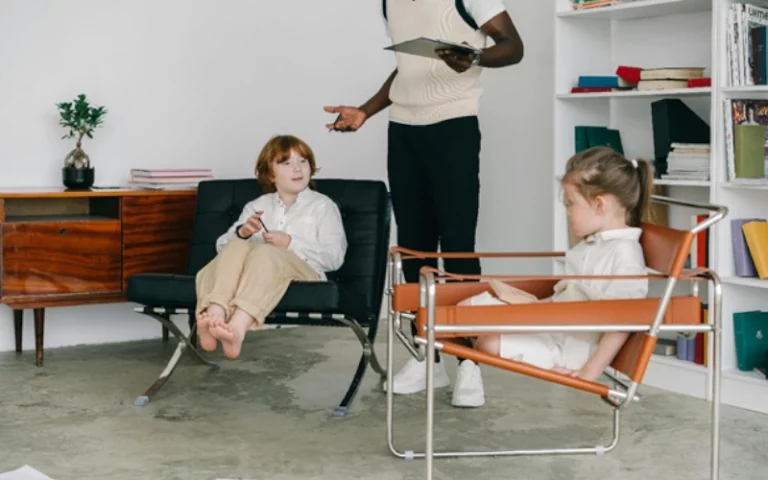Table of Contents
Would you like to know how to learn a new language by yourself? Attending evening classes can be an inconvenience if you want to learn a language, but you also want to maintain a social life. Or maybe you don’t want to spend a fortune on a tutor who will only teach you according to his rules.
What are your options? Do you know of any way that you can learn a language on your own time, with content you are interested in learning? Here are our tips for getting started.
Is It Hard to Learn a Foreign Language?
The word and grammar alone do not make up a language. Slang, dialects, rhythm, and abbreviations are all part of the language, as are local dialects and idioms people use. It is important to understand all these dimensions, learn the vocabulary, and speak the right words to learn a language.
My own language learning experience was not easy. When you decide to learn a new language, you need to study every day and interact with locals to be able to speak the language colloquially.
Why to Learn Foreign Language?
Are you interested in studying or travelling abroad? How about volunteering or working abroad? A community’s heart and brain is its language. Assimilation requires conversing in the language of the people you want to befriend.
Otherwise, you wouldn’t understand their life and would always remain a foreigner. New cultures and communication methods open us up to new opportunities when we learn a new language.
5 Proven Effective Ways to Learn a Language

All it takes is dedication and practice to learn a new language! The Internet has many resources and tips available to those wishing how to learn a new language by yourself. We’ve assembled a guide to help you find the right tools and strategies for learning a new language.
1. Look For a Native Speaker of the Language

Learning a foreign language is primarily motivated by the desire to speak it. When you surround yourself with Spanish speakers, you might be able to learn Spanish within a few weeks.
Native speakers have access to someone who understands the target language deeply, so speaking the language isn’t just a necessity.
You will think about the language you’d like to learn better by talking to a native speaker. Exchanges of languages are a great way to learn new languages with people who have the same interests as you.
2. Choosing the Right Course Materials

Learn a new language with an app. You can select one or two from the reviews that you think will be both fun and useful. If you use this method, you can learn while riding a subway or train, during your lunch break at school, or just about anywhere. Direct translations and audio exercises are used in this method. Get a book for language study.
Seeing translations from your native language into the target language requires a dual-language book. Read a few books in the language you want to learn, aside from textbooks, such as novels or nonfiction.
If you are a visual learner, going over the language in print will help you. Immersion refers to entering an environment where only that language is spoken.
Even if you listen to music and watch television in the target language in your own home, it does not necessarily have to be a foreign country.
It may also be useful for you to go to a part of your city where the language is spoken. The best way to learn a language if you have a kinesthetic learning style would be through immersion. Write down your ideas.
You can remember things better by writing them down. You might consider creating a booklet with grammar rules and vocabulary. The first step is to pick out a notebook to keep your notes in (lined paper instead of grid paper might be helpful).
Once that is done, arrange the notes however you wish. A grammar point can be on one side of the page and a vocabulary point on the other. It also provides the opportunity to practice writing sentences. Consider splitting it into sections for grammar and vocabulary.
3. Start With the Basics
The importance of studying grammar rules cannot be overstated. Your target language’s grammar rules may differ considerably from your native language. You will benefit in the long run if you spend some time learning about the structure of sentences, including word order and parts of speech.
The first words to learn are those you will be using daily. Choosing personal pronouns first may make it easier to process adjectives or verbs requiring conjugation later.
Practice basic phrases. Sometimes one word will prompt another. Make mental pictures of connections from one word to another.
You may remember them better if they seem bizarre or obscure. Repeating words is one of the best ways to learn languages.
Spend some time and make practice reviewing your vocabulary words every day. You can display the cards throughout your room or home so that they are always visible. Alternatively, you can create your flashcards.
4. Keeping Yourself Motivated
How to learn a new language by yourself? For this process, changing things up is always good. Play interactive games, watch videos and read scripts.
Read, write, and enjoy your entertainment in the new language to reinforce your learning and increase your fluency. Set realistic goals. Learning five new phrases or ten new words a day is up to you.
Watching shows or listening to songs in the language can also be useful, as well as reading a few pages in the language each day.
It may be helpful to set a goal that requires you to speak a certain amount of target language each day. Ensure that your learning style and your goals are aligned.
Stay motivated. Foreign languages can be difficult to learn. You won’t be fluent after a few months, so don’t berate yourself for not being fluent.
Keep trying and working hard. Don’t lose motivation by forgetting why you wanted to learn the language in the first place.
5. Try Language-Learning Tips That Work
Learn foreign languages by listening to music. If you know the lyrics by heart, you may be able to recognize words if there are songs in another language you like.
It is also possible to print out the lyrics of songs you have never heard, then translate them.
Choose a topic that you usually read about (such as technology news) and try reading it in the other language. Learn about the topic in the language you are learning by finding online newspaper articles and blogs.
Read articles in your target language only about the topic. Watch foreign language broadcasts on the web. Foreign language broadcasts can be found on BBC World Service.
Additionally, many TV stations broadcast news stories and shows in other languages. Reading grammar texts can be much more enjoyable this way.
Enjoy watching movies or television shows in the target language with audio or subtitles. In addition to selecting subtitles in your native language, you could select a voice over in another language.
You will see subtitles or words in your own language but hear the words in another language while watching the movies or your favorite shows. Listen to subtitles in your language while reading translations.
Eventually, you can try watching the movie or show without subtitles in a foreign language. Podcasts have the advantage of being downloadable over internet radio.
Podcasts can be listened to repeatedly until you feel like you understand once you understand the basics of vocabulary and grammar, don’t be afraid to specialize your learning – for example, if you are interested in technology, listening to podcasts on technology is a great place to start because many technology-related words are adapted from English.
Can We Learn Languages Online?
Yes, an online language learning application or website can easily connect you with a native speaker of the target language.
Some of these websites can connect you with other learners on the go, some allow you to schedule a language-learning session, and a few even offer other language-learning resources.
You can find people interested in learning the same language in your city or on social media. Start using Skype or another voice-over-IP method. Two good language learning apps are Duolingo and Busuu.
You can also learn new languages on your own by using a variety of different types of software. Learn the language by playing your usual games.
Most online and mobile games let you change the language. If this is the case, switch to the language you’re learning. You will be able to play some of it intuitively since you are already familiar with it.
The new words will also be appearing regularly, and you may have to decipher what is being said to advance through the game.
Chat with a native speaker in person or a forum/chat room. Correcting your mistakes as well as learning new tactics and tips can help you master the language quicker.
Join an international social network. Changing the language in your internet browser can also result in this change, as many sites will automatically change the language.

Ihsan Sharif is a talented writer known for his engaging articles on linguistic topics. With a keen eye for detail and a passion for language, Ihsan brings complex linguistic concepts to life, making them accessible and interesting to a wide audience.




